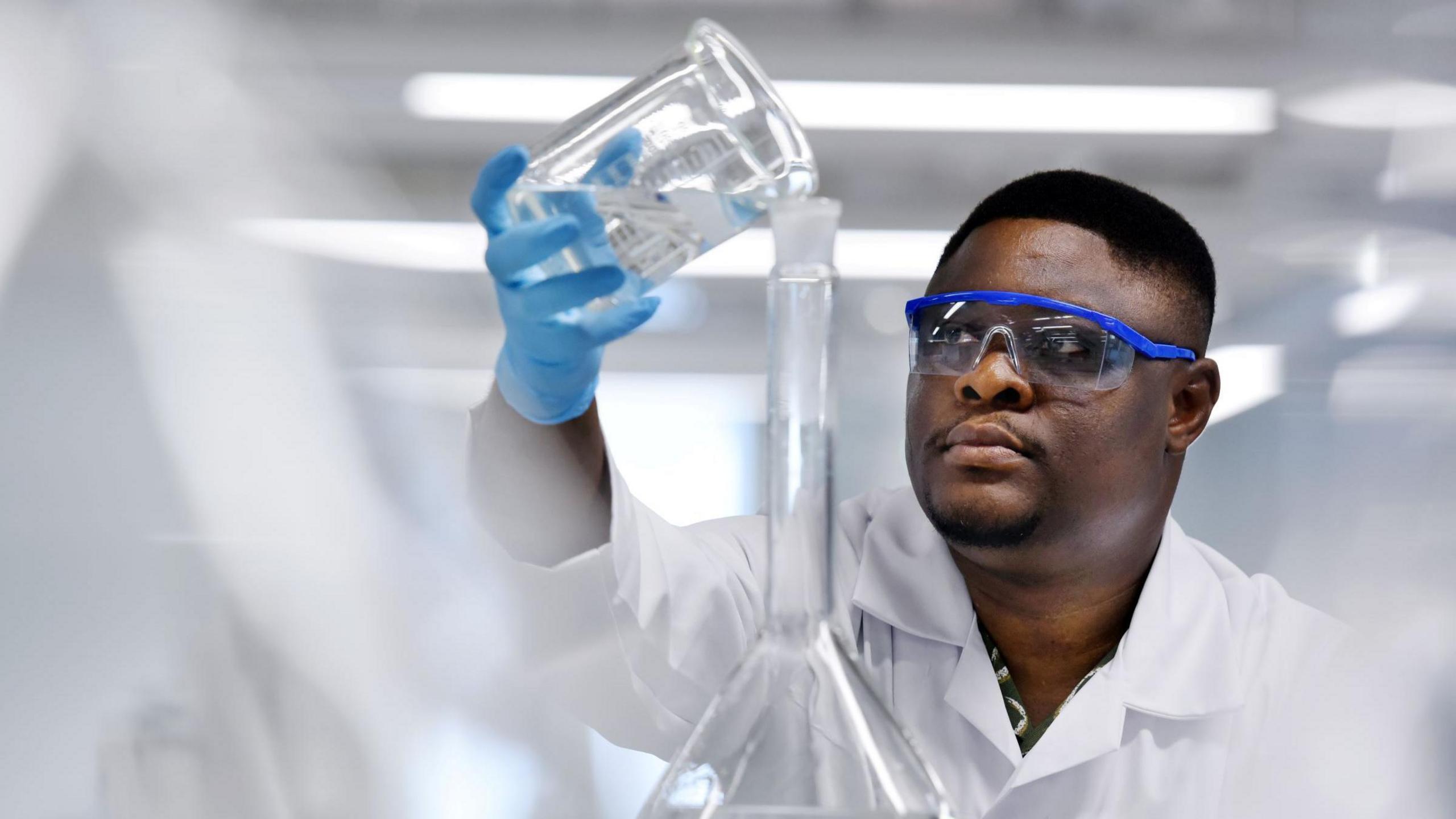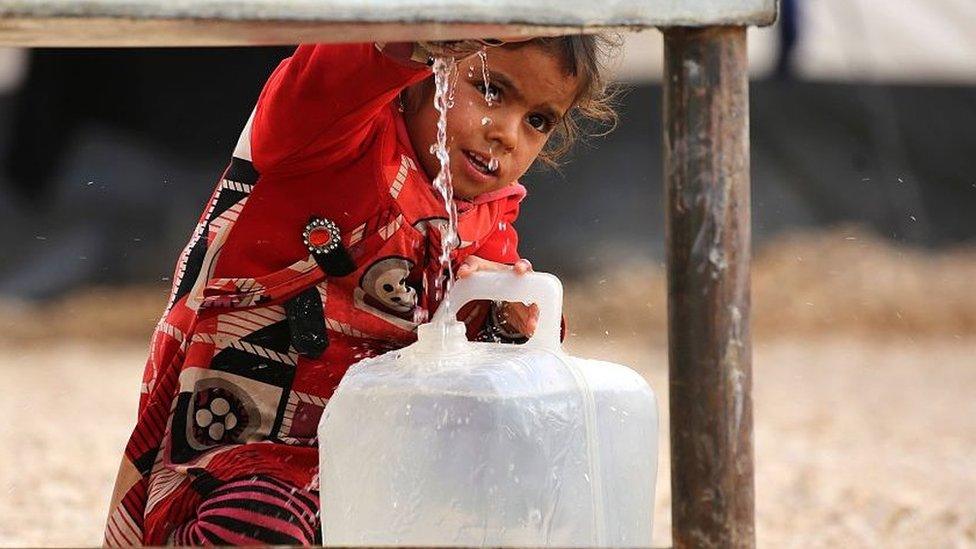Water purification invention could help millions

Dr Ojodomo Achadu is leading research on a new solar powered water purification system
- Published
University academics are working on a solar-powered water purification system that could improve access to clean drinking water for millions of people in the developing world.
Teesside University's School of Health and Life Sciences is working with counterparts in South Africa and the Democratic Republic of Congo (DRC) on the technology.
The new system will provide a "portable and affordable way" of purifying and removing pollutants from water.
Scientists said the initiative marked a "pivotal moment".
The DRC is one of Africa’s most water-rich countries, yet millions of people lack access to clean water.
This project, which has received £300,000 from the Royal Society’s International Science Partnerships Fund (ISPF), proposes using tiny particles, known as nanomaterials and nanotechnology processes, coupled with solar energy to purify water.
It will be led by Dr Ojodomo Achadu from Teesside University, together with Dr Muthumuni Managa from the University of South Africa (UNISA), and Prof Christian Nkanga from the Universite de Kinshasa in DRC.
The project proposes using methods to remove chemicals and pathogens from water in a single step process that can be operated in both households and fields.
Dr Achadu said: “Receiving this grant award is an incredible honour which reflects the excellent academic track records and research leadership of the team."
Prof Nkanga said the project has "user-friendliness at its core" and will have "a major impact, empowering communities to access water they need to dramatically improve their living conditions and thrive".
Follow BBC Tees on X (formerly Twitter), external, Facebook, external and Instagram, external. Send your story ideas to northeastandcumbria@bbc.co.uk.
Related stories
- Published2 August 2021
